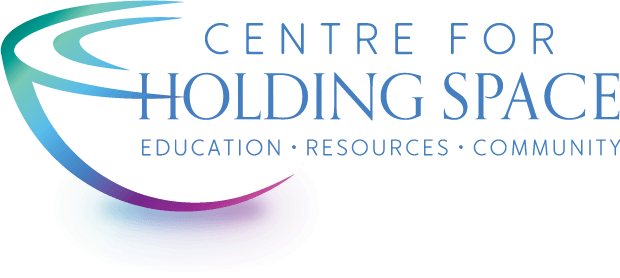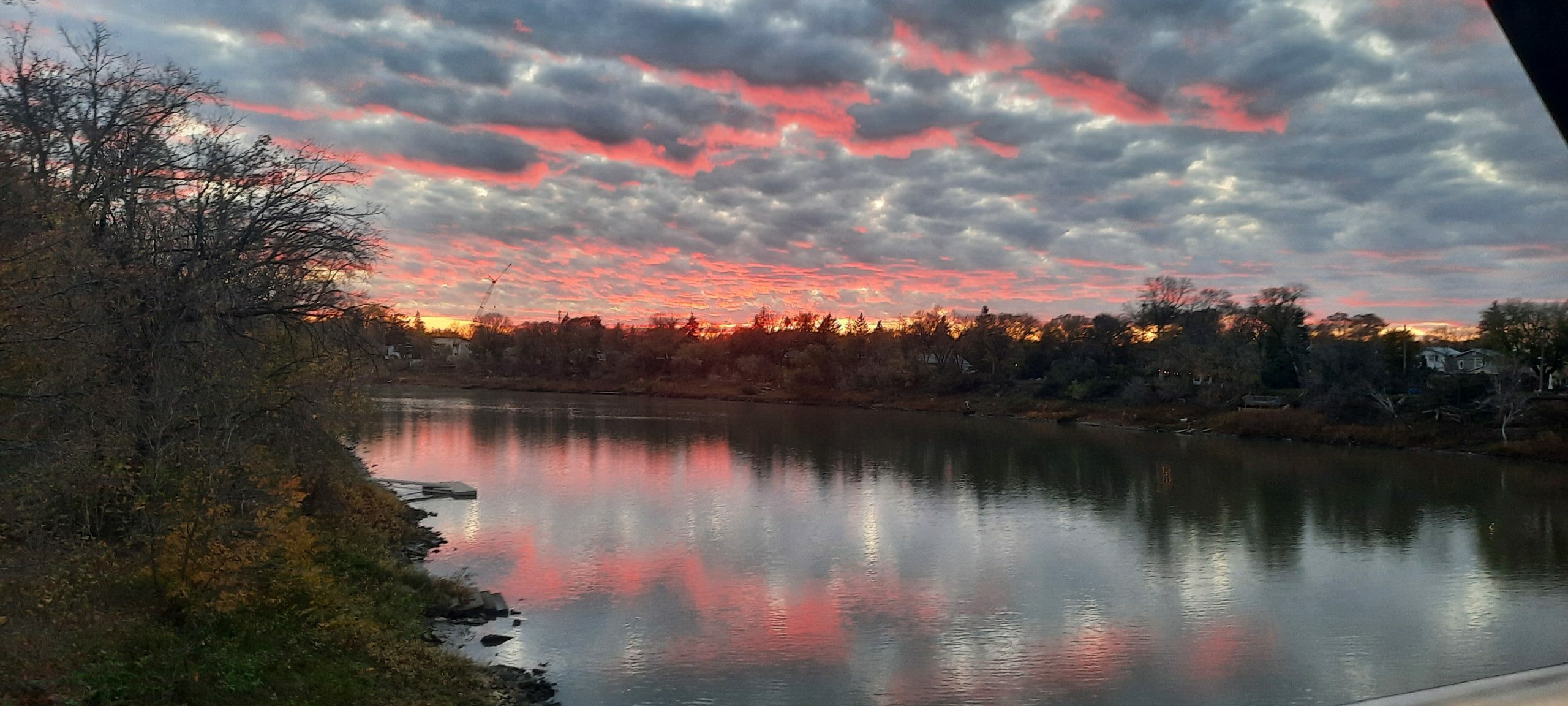Listen to Krista read the post:
It’s a new calendar year. I frequently feel ambivalent about January – it often seems as though my ‘new year’ starts in September with the return of school. That being said, I do get as caught up as anyone else in the season’s spirit of reflection and goal/intention setting.
My Facebook memories reminded me that last year, I’d set a theme of “Tender Grounding”. I definitely did not do enough work on making that a thing. For many and varied reasons, 2023 was a hard year. I’m fairly confident that that was true for a lot of people. The first ‘post-pandemic’ year marked what felt like a desperate fervour to ‘get back to normal’ – despite the war in Ukraine grinding on, despite the climate crisis becoming more obvious and keen, despite growing political division and fascist ideologies becoming accepted and implemented world-wide, despite the ever-tenuous Israel-Palestine situation literally exploding and turning into little more than death and destruction (not to mention other areas of the world that got less press), despite rapid inflation and deep economic hardship for everyone but the richest of us, despite the fact that COVID is not, in fact, finished mutating and harming us. This last year it has felt like the whole globe is in one giant humanitarian crisis all of the time. There’s literally nowhere to go to escape tragedy.
I am an empathetic person. Leaning into “Tender Grounding” was deeply difficult when the ground itself felt like it was burning.
The combination of feeling existentially constantly in crisis, combined with a host of personal and professional challenges, took whatever wind was in my sails at the beginning of last January and turned them into gale-force storms that all but sunk my boat by the time June rolled around. And while I had July off, that didn’t stop the storms from taking over again when I went back to work in August.
Deconstruction vs. Demolition
In some of the circles that I frequent (the ‘grew up Christian’ ones), much has been made of the word deconstruction. I am often asked about my deconstruction journey – which is usually defined as the process of taking apart and/or unlearning the faith you were born and raised in. I’ve always had an uncomfortable relationship with that word. It hasn’t exactly felt like the right one to describe the process in which I have found myself. Perhaps that’s because most of my friends who use the word also removed themselves from the religious institutions they’d been a part of while I have stuck around to continue to lead one.
Additionally, deconstruction, in my mind anyway, implies some control of the process, whereas I have often felt as though I have been forced to witness a demolition of sorts. Things have fallen down around me, rather than me choosing to take them apart. All the glamours I had in place and the mesmers that I had been under have all been stripped away and I am left staring at little more than rubble that had been trying to convince me (and that I had, in many ways, convinced myself) was a shimmering city of gold. Worse, those glamours and mesmers fell away from many individuals in my life as well which is a keener kind of disappointment, to be sure.
Deconstruction also (again, to me) implies that a reconstruction is somehow possible. But the devastation is too vast. The demolition is too complete. There doesn’t seem to be anything salvageable from the detritus.
Holding space is about being present and witnessing, without judgement or needing to change what is. But constantly bearing witness and being present can leave the space holder feeling much like I do – disenchanted.
Dis- and Re-Enchantment
I stumbled across that word when listening to a podcast where the guest, Brad Onishi (from Straight White American Jesus), talks about being a “secular person of faith”. It was an a-ha moment for me. That’s what the existential and personal crises have left me feeling – disenchanted with all the things and people that have been demolished or stripped of their glamour/mesmer.
Of course, the opposite, re-enchantment then becomes a morsel to chew on. Can I become re-enchanted in some way? Not by building up new glamours or demanding different mesmers, but by witnessing the beauty of what is?
In several of our Holding Space circles, we have contemplated this idea of acceptance of what is. We all agree that it’s a great idea – very freeing – but how do you balance that with also wanting to grow and learn and do things like move the needle on creating more just and human systems for us all to live in? How do you live in the both/and of “yes, I accept that this is reality” and also “obviously things can be better and I will work to help make them that way”?
Perhaps re-enchantment is the partial answer. This year, I have read books about the importance of awe (Awe: The new science of everyday wonder and how it can transform your life), the importance of rest (Rest is Resistance: A manifesto), the importance of non-violent resistance (Healing Resistance: A radically different response to harm), the importance of repentance and repair (On Repentance and Repair: Making amends in an unapologetic world), and the importance of love (All About Love: New Visions and Love Matters More: How fighting to be right keeps us from loving like Jesus). I wonder whether all of these books, at heart, are ideas of how to move towards re-enchantment.
In fact, I would argue that Heather’s new book, Where Tenderness Lives definitely does just that. This small, but powerful memoir exposes many of Heather’s own moments of demolition and disenchantment and how she was able to find the tenderness required to move back towards re-enchanting her life. It officially launches on Tuesday, January 23rd and I am so excited for this book to be in the world. From my point of view, this book feels very different from the last – there is much more a sense that it has its own life and won’t be confined as a text book in the same way the first one was. If you’d like a personal introduction to the book, Heather & I will be hosting a live, on-line book launch event on Tuesday, the 23rd at 8:00pm GMT. We would love to have you join us for that. (Sign up here!)
Learning Alone Together
I have been so incredibly fortunate to be allowed to walk behind and alongside Heather over the last seven years to both observe and be a part of her story. I have been able to see her grow and deepen and become more and more the unassuming sage who allows others to learn both from and with her. She hates when people guru-fy her and that’s not my intent – Heather is more like one of those delightful people you meet while out walking who turns out to be a really great companion and who also has some really wise things to say but doesn’t insist you walk the exact same path as her. She’s just glad to be with you there in the moment.
Take me as a case in point – even this close up to Heather, I have had to walk my own journey and deal with my own self (and my own stuff!). But that is the devastating beauty of the work that we are doing. We are each responsible for our own individual growth and healing, but we are never alone in the work. We get to do it together and that’s how we start to move the needle on the bigger stuff – by growing and healing and learning on our own paths, but together.
Our most self-help-y titled (but least self-help-y like) program, Know Yourself, Free Yourself, is such a great place to explore the both/and growth on our own together and that both/and place of acceptance, a longing for change, and moving towards re-enchantment. The course material is so adept at revealing all the things that are, while offering tools, resources, and books that can help us all envision more for ourselves and the world we live in. We start again on Tuesday, March 5 and are accepting registrations. This year, Heather’s new book will play a role in the course, so if you’ve taken it before, you might want to think about joining us again.
I imagine that the demolition won’t ever be completely over. Nor will the times of deep disenchantment. But perhaps, little by little, with good companions on the journey, we can begin to re-enchant each other towards a better, more fully human and humane world.

